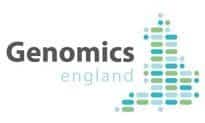Genomics England has announced the four companies that will help interpret human genomes as part of the government’s ambitious 100,000 Genomes Project.
From 1 August gene specialists Congenica, Omicia, Nanthealth and Wuxi Nextcode will work on assessing the genomes of the first 8,000 patients involved in the project, which intends to map the DNA of 100,000 patients to give a greater understanding of the relationship between genes and disease.
Solid State Solutions, which is part of Capita , has also been appointed to provide storage for the project.
The four gene specialists will make use of data that has been sequenced by US technology firm Illumina at a £27 million sequencing centre funded and built by the Wellcome Trust on its Genome Campus in Cambridge.
Both Congenica, a Cambridge-based spinout from The Wellcome Trust Sanger Institute, and Omicia, a California-based genomics company, will work on interpreting the data of people with rare diseases.
Another Californian firm, NantHealth, will work on interpreting cancer data, while WuXi NextCODE will analyse data from both cancer and rare disease patients.
Lockheed Martin in partnership with Cypher Genomics has been appointed by Genomics England as reserve bidder.
The companies were chosen after a ‘bake off’ contest in spring 2014 where 28 participants were challenged to interpret the genomes of 15 rare disease trio samples and 10 samples that were either normal or from cancer patients.
Genomics England said 10 companies passed this stage and were then asked to tender to provide an automated service to interpret data.
The organisation said it wanted to appoint several providers so that it could “learn from a variety of approaches” in this area.
This idea will be extended once companies start to analyse patient data in August, with multiple firms expected to provide reports for a number of the same people in order to compare performance.
The first phase of the project, when 8,000 genomes will be analysed, is expected to be completed within 12 months, while the contract for the next phase will be agreed in early 2016.
As part of its involvement in the project NantHealth will make use of its analytics platform software NantContraster for genomic interpretation and reporting. This analysis can be provided as a printable report or in a digital format via the NantCancer Genome Browser.
Congenica will use its Sapientia diagnostic platform to perform the analysis. This tool can identify single-gene mutations associated with diseases and provide this information to consultants.
Richard Durbin, co-founder of Congenica, said: “Not all gene mutations cause disease so patient data is vital to identify which are critical. With access to more data we will be able to improve diagnoses for patients.”
Omicia, which will use its Opal platform for the genome project, used its VAAST algorithm in the discovery of the gene for the rare disease Ogden Syndrome, one of the first disease genes identified using next-generation sequencing.
WuXi NextCODE is the only company to interpret both rare disease and cancer data as part of the project, working to identify variants in rare diseases as well as driver mutations in tumours.
The company’s chairman and CEO De Li said: "[Genomics England] is a pioneer in the global movement to realise precision medicine at scale, and we are honoured to play a part in delivering on this vision in the UK and around the world."
S3 will provide a ‘scale out’ storage system using the EMC Isilon system and will initially provide storage for seven petabytes of data, allowing multiple users to access the same data at the same time.
Dave Brown, Genomics England head of informatics infrastructure, said: “S3’s involvement in the deployment of our Isilon storage has been invaluable in terms of meeting project timescales.”

